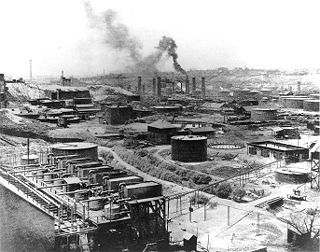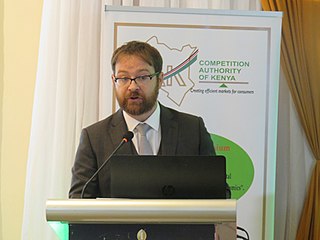
A cartel is a group of independent market participants who collude with each other as well as agreeing not to compete with each other in order to improve their profits and dominate the market. A cartel is an organization formed by producers to limit competition and increase prices by creating artificial shortages through low production quotas, stockpiling, and marketing quotas. Cartels can be vertical or horizontal but are inherently unstable due to the temptation to defect and falling prices for all members. Additionally, advancements in technology or the emergence of substitutes may undermine cartel pricing power, leading to the breakdown of the cooperation needed to sustain the cartel. Cartels are usually associations in the same sphere of business, and thus an alliance of rivals. Most jurisdictions consider it anti-competitive behavior and have outlawed such practices. Cartel behavior includes price fixing, bid rigging, and reductions in output. The doctrine in economics that analyzes cartels is cartel theory. Cartels are distinguished from other forms of collusion or anti-competitive organization such as corporate mergers.
The Clayton Antitrust Act of 1914, is a part of United States antitrust law with the goal of adding further substance to the U.S. antitrust law regime; the Clayton Act seeks to prevent anticompetitive practices in their incipiency. That regime started with the Sherman Antitrust Act of 1890, the first Federal law outlawing practices that were harmful to consumers. The Clayton Act specified particular prohibited conduct, the three-level enforcement scheme, the exemptions, and the remedial measures. Like the Sherman Act, much of the substance of the Clayton Act has been developed and animated by the U.S. courts, particularly the Supreme Court.

In the United States, antitrust law is a collection of mostly federal laws that govern the conduct and organization of businesses in order to promote economic competition and prevent unjustified monopolies. The three main U.S. antitrust statutes are the Sherman Act of 1890, the Clayton Act of 1914, and the Federal Trade Commission Act of 1914. These acts serve three major functions. First, Section 1 of the Sherman Act prohibits price fixing and the operation of cartels, and prohibits other collusive practices that unreasonably restrain trade. Second, Section 7 of the Clayton Act restricts the mergers and acquisitions of organizations that may substantially lessen competition or tend to create a monopoly. Third, Section 2 of the Sherman Act prohibits monopolization.

Carey Estes Kefauver was an American politician from Tennessee. A member of the Democratic Party, he served in the U.S. House of Representatives from 1939 to 1949 and in the U.S. Senate from 1949 until his death in 1963.
Competition law is the field of law that promotes or seeks to maintain market competition by regulating anti-competitive conduct by companies. Competition law is implemented through public and private enforcement. It is also known as antitrust law, anti-monopoly law, and trade practices law; the act of pushing for antitrust measures or attacking monopolistic companies is commonly known as trust busting.

Harley Martin Kilgore was a United States senator from West Virginia.
In economics, market concentration is a function of the number of firms and their respective shares of the total production in a market. Market concentration is the portion of a given market's market share that is held by a small number of businesses. To ascertain whether an industry is competitive or not, it is employed in antitrust law land economic regulation. When market concentration is high, it indicates that a few firms dominate the market and oligopoly or monopolistic competition is likely to exist. In most cases, high market concentration produces undesirable consequences such as reduced competition and higher prices.

Robert D. Tollison was an American economist who specialized in public choice theory.
The Antitrust Paradox is an influential 1978 book by Robert Bork that criticized the state of United States antitrust law in the 1970s. A second edition, updated to reflect substantial changes in the law, was published in 1993. Bork has credited Aaron Director as well as other economists from the University of Chicago as influences.

William Evan Kovacic is an American legal scholar who served as a commissioner of the Federal Trade Commission (FTC) from 2006 to 2011, including as its chairman from 2008 to 2009. He is a member of the Republican Party.
George Ward Stocking Sr. was an American economist, who was one of the pioneers of industrial organization and an early writer on international cartels.

The National Industrial Recovery Act of 1933 (NIRA) was a US labor law and consumer law passed by the 73rd US Congress to authorize the president to regulate industry for fair wages and prices that would stimulate economic recovery. It also established a national public works program known as the Public Works Administration (PWA). The National Recovery Administration (NRA) portion was widely hailed in 1933, but by 1934 business opinion of the act had soured.
Donald Frank Turner was an American lawyer, economist, and legal scholar known for his expertise in United States antitrust law. He was a professor at Harvard Law School from 1954 to 1979 and served as the Assistant Attorney General in charge of the Antitrust Division of the U.S. Department of Justice from 1965 to 1968.

Eleanor Martha Hadley was an American economist and policymaker. Because of her relatively rare research specialization in Japanese economics, during World War II Hadley was recruited first into OSS and then the State Department to support the United States' war effort while she was a doctoral candidate in economics at Radcliffe College. Hadley helped draft the United States' plans for dissolving zaibatsu business conglomerates as part of a planned effort to democratize Japan after the war, and she participated in implementing this economic deconcentration program when the postwar occupation brought her to Japan to work for SCAP as an economist.
Joe Staten Bain was an American economist associated with the University of California, Berkeley. Bain was designated a Distinguished Fellow by the American Economic Association in 1982. An accompanying statement referred to him as "the undisputed father of modern Industrial Organization Economics."

The history of United States antitrust law is generally taken to begin with the Sherman Antitrust Act 1890, although some form of policy to regulate competition in the market economy has existed throughout the common law's history. Although "trust" had a technical legal meaning, the word was commonly used to denote big business, especially a large, growing manufacturing conglomerate of the sort that suddenly emerged in great numbers in the 1880s and 1890s. The Interstate Commerce Act of 1887 began a shift towards federal rather than state regulation of big business. It was followed by the Sherman Antitrust Act of 1890, the Clayton Antitrust Act and the Federal Trade Commission Act of 1914, the Robinson-Patman Act of 1936, and the Celler-Kefauver Act of 1950.

Peter Whelan is a professor of law at the School of Law, University of Leeds. A qualified New York Attorney-at-Law, Whelan conducts research in competition (antitrust) law and criminal law. He published the first full-length monograph on the criminal enforcement of competition law with Oxford University Press.
Wendell Berge was an American business lawyer. He served as head of the Antitrust Division of the Department of Justice from 1943 to 1947.
Joseph Borkin was an American economic lawyer and book author.
Mordecai Kurz is an economist whose research work has covered a variety of problems in economic theory and policy. He has written extensively on growth theory, game theory, the formation of beliefs, and the effect of market power on inequality and growth, and he has worked on various policy projects. He contributed to the design of minimum income guarantee experiments in Seattle and Denver from 1971 to 1975, and in Manitoba in 1974. He also served as a special economic advisor to President Carter’s Commission on Pension Policy in 1979.









